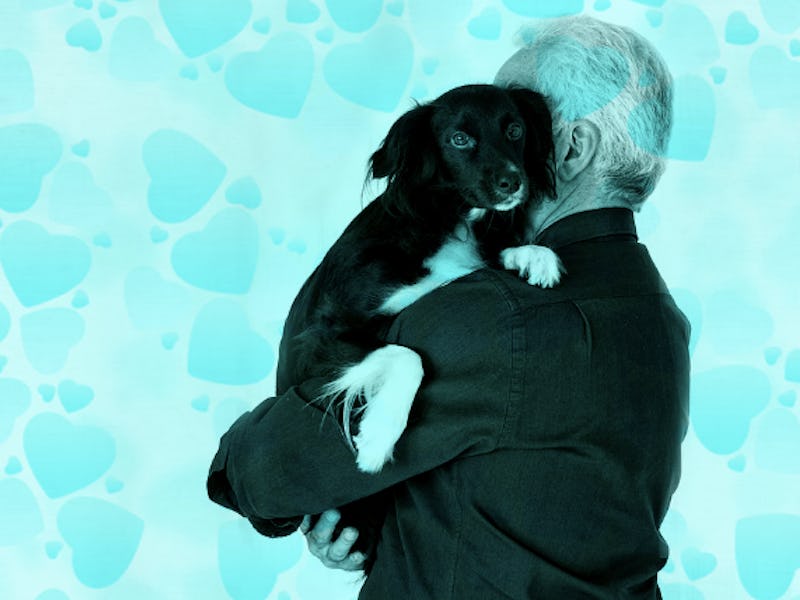Very Good Boys Can Extend the Lives of Sick Humans, Study Shows
Depression reduction results in important effects.

Dogs are very good. Genetically inclined to enjoy the company of humans, pups can do far more than treat us with their cuteness, with some being trained to sniff out cancer, be loyal in war, and sit patiently while children learn to read. While dogs may use their dopey faces to manipulate us into giving them a few more bones, the body of science that demonstrates what good dogs can do for us is consistently growing.
A new study adds to the pile with the assertion that dogs can ease the depression of adults diagnosed with HIV (human immunodeficiency virus), which in turn results in long-term health benefits. Published Wednesday in the journal JMIR, the study found that dog ownership reduced the likelihood of depression in HIV patients, a group that is approximately twice as likely to be depressed compared with HIV-negative individuals.
“We know that stigma is still very much real for many people affected by HIV, and that stigma can lead to feelings of isolation, loneliness, or depression,” said study co-author, Robert Garofalo, M.D. M.P.H, in an interview with MD Magazine.
“While doctors cannot readily write a prescription for a dog for their patients, this study suggests that dog ownership or aspects of unconditional love and social engagement that may come with having a pet, could be beneficial to patients who are isolated or depressed as a result of their HIV infection.”
Dogs help ease depression.
In the study of 199 participants, 86.4 percent which were male and 80.4 percent which were white, were asked to fill out a web survey that the study authors used to asked demographic questions, determine pet ownership, and measure both a scale of depression and resilience to that depression. Dog ownership within the sample was high, with an average of 68.3 percent of the participants already owning pups.
The researchers determined that the participants who did not own dogs were three times more likely to experience depression, compared to dog owners. The dog-owning participants correctly suspected that owning a dog would ease their pain — of the group that had a dog, approximately 68.9 percent got a dog after they were diagnosed with HIV.
Dogs are very good.
Garofalo and his co-authors note that depression-alleviating dogs contribute to the health of their owners because depression causes HIV-positive patients to not stick with their antiretroviral therapy regimes.
“Depression influences not only the psychological health of PLHIV, but is a correlate of overall HIV disease progression as well,” says Garofalo. “Support for, or promotion of dog adoption and ownership may be a novel intervention to positively impact depression and, in turn, positively affect other HIV-related health outcomes.”
This study is in line with previously conducted health research, which has found that pet ownership can be correlated with lower heart rates, blood pressure, and blood cholesterol.